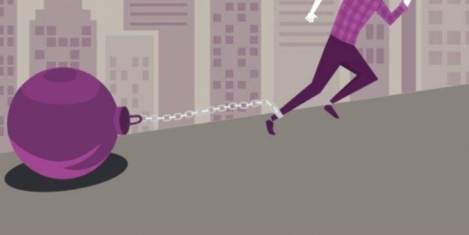August 11, 2020
Freelancer income fell by a quarter during lockdown
 In the second quarter of 2020, freelancers’ average income dropped by 25 percent, according to the latest freelancer Confidence Index by IPSE (the Association of Independent Professionals and the Self-Employed). According to IPSE, the drop in income was driven by a record fall in the average number of weeks freelancers worked this quarter. Between March and June, the average freelancer went 5.5 weeks out of 13 without work. Combined with a 3 percent fall in freelancers’ average day rates, this led to average quarterly earnings declining by 25 percent from £20,821 in Q1 2020 to £15,709 in Q2 2020. More →
In the second quarter of 2020, freelancers’ average income dropped by 25 percent, according to the latest freelancer Confidence Index by IPSE (the Association of Independent Professionals and the Self-Employed). According to IPSE, the drop in income was driven by a record fall in the average number of weeks freelancers worked this quarter. Between March and June, the average freelancer went 5.5 weeks out of 13 without work. Combined with a 3 percent fall in freelancers’ average day rates, this led to average quarterly earnings declining by 25 percent from £20,821 in Q1 2020 to £15,709 in Q2 2020. More →













 Nearly a third of freelancers are planning to stop contracting in the UK because the changes to IR35 due in the private sector in April,
Nearly a third of freelancers are planning to stop contracting in the UK because the changes to IR35 due in the private sector in April, 
 Two surveys have highlighted continuing fears among freelancers about the changes to the IR35 rules due to take effect in April. The reforms will shift the responsibility for defining contractors’ tax status from the individual to the employer to crack down on so-called ‘disguised employment’, where off-payroll workers are able to pay less tax than employees. However, concerns have been raised that the rules could force organisations to bring genuine contractors and freelancers on to the payroll, reducing flexibility for both parties.
Two surveys have highlighted continuing fears among freelancers about the changes to the IR35 rules due to take effect in April. The reforms will shift the responsibility for defining contractors’ tax status from the individual to the employer to crack down on so-called ‘disguised employment’, where off-payroll workers are able to pay less tax than employees. However, concerns have been raised that the rules could force organisations to bring genuine contractors and freelancers on to the payroll, reducing flexibility for both parties. 
















October 16, 2019
Remote working can increase stress and reduce wellbeing
by Stephanie Russell • Comment, Flexible working, Wellbeing